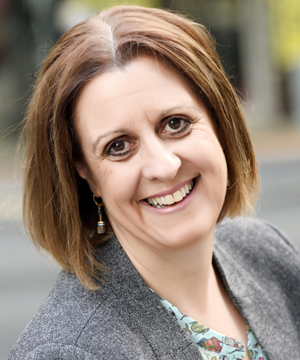The final countdown to the new regime is well and truly on, with the date of 16 March marking the culmination of a long and intense journey for many.
During February, Financial Advice NZ launched a four-part webinar series called ‘2023 The Road Ahead’.
Each week, we are tackling a different theme to help advisers ensure they’re on track, including key things to think about and best business practices. You can find recordings and Powerpoint presentations in the membership area of Financial Advice.
The first webinar, on 1 February, talked about competency requirements. This is a crucial component of being licensed in the new regime, and one that we continuously focus on through our webinar line-up and membership CPD activities.
So, here’s a rundown of what ‘competency, knowledge and skill’ means for the financial advice profession, which goes beyond completing a certain number of CPD hours.
More than the ‘product’
The new regime doesn’t simply require a specific competence, knowledge and skill about a particular product (such as insurance or mortgages), or the ability to design an investment plan. This is no doubt essential when providing advice, but the boundaries of competence requirements go further than this.
Financial advisers are also expected to have general competence, knowledge, and skill. This is the ability to understand the environment they operate within, and the ramifications of legislation and environmental changes on the advice they provide.
For example, in the current environment, advisers need to understand what inflation means for their clients’ overall financial picture, and maybe think outside the square about how they manage client relationships.

On top of this, professional development isn’t just about technical knowledge, but also soft skills such as communication, relationship-building, and external and internal relationship-management.
These are all skills that allow advisers to nurture their client relationships and build trust, which is fundamental to quality advice.
Quality over quantity
In the new financial advice world, the CPD requirements are principles-based. So, rather than being a box-ticking exercise, CPD is about identifying knowledge gaps and targeting them.
This is very important when creating an effective CPD plan. It all starts with taking an honest, closer look at potential ‘weaknesses’. The next step is to find ways to bridge those gaps.
Accumulating CPD hours without a plan can lead to overlaps, and ultimately, hearing about the same topics over and over is not an effective use of time. On the other hand, a CPD plan allows you to design an optimised ‘knowledge path’, with clear objectives and minimal detours.
Every time you attend a webinar, a seminar, or read a report, ‘growing’ needs to be the primary goal…
Structure matters
Under the previous regime, the accent was on the difference between structured and unstructured learning. With the new regime, it becomes more evident that the purpose of CPD is for advisers to learn and grow professionally in a wide range of ways – both structured and unstructured.
Structured CPD is outputs-based learning. It’s something you do in a learning environment, with specific learning activities, and often audience interaction and the opportunity to ask questions.
Unstructured CPD, on the other hand, doesn’t directly monitor a person’s knowledge through a learning output. For example, reading or researching information to keep up to date is unstructured learning. And for the purpose of the new regime, it’s still recognised as a valuable learning activity.
The bottom line is that, depending on your needs and style, you can do a mix of structured and unstructured learning, as long as you fill in the gaps and progress yourself. Every time you attend a webinar, a seminar, or read a report, ‘growing’ needs to be the primary goal.
To ensure that our members stay up to date, we always invite experts to provide a broader knowledge of the environment, as part of our ‘Bring in the Experts’ webinar series. We now have more than 130 webinars in our library, encompassing all areas of advice and more.
It’s one of the ways we help our members meet their competence, knowledge, and skill requirements, alongside regional in-person initiatives.
What’s more, we are about to move towards a new platform for professional development plans. This will allow both FAPs and individual advisers to streamline their PDP activities, while also giving them access to fresh content every month.
If you would like to learn more about our initiatives, we welcome you to visit Financial Advice. Also, make sure you check out the four-part webinar series ‘2023 The Road Ahead’, where we talk about competence, disclosure, record-keeping, and business continuity plans.




